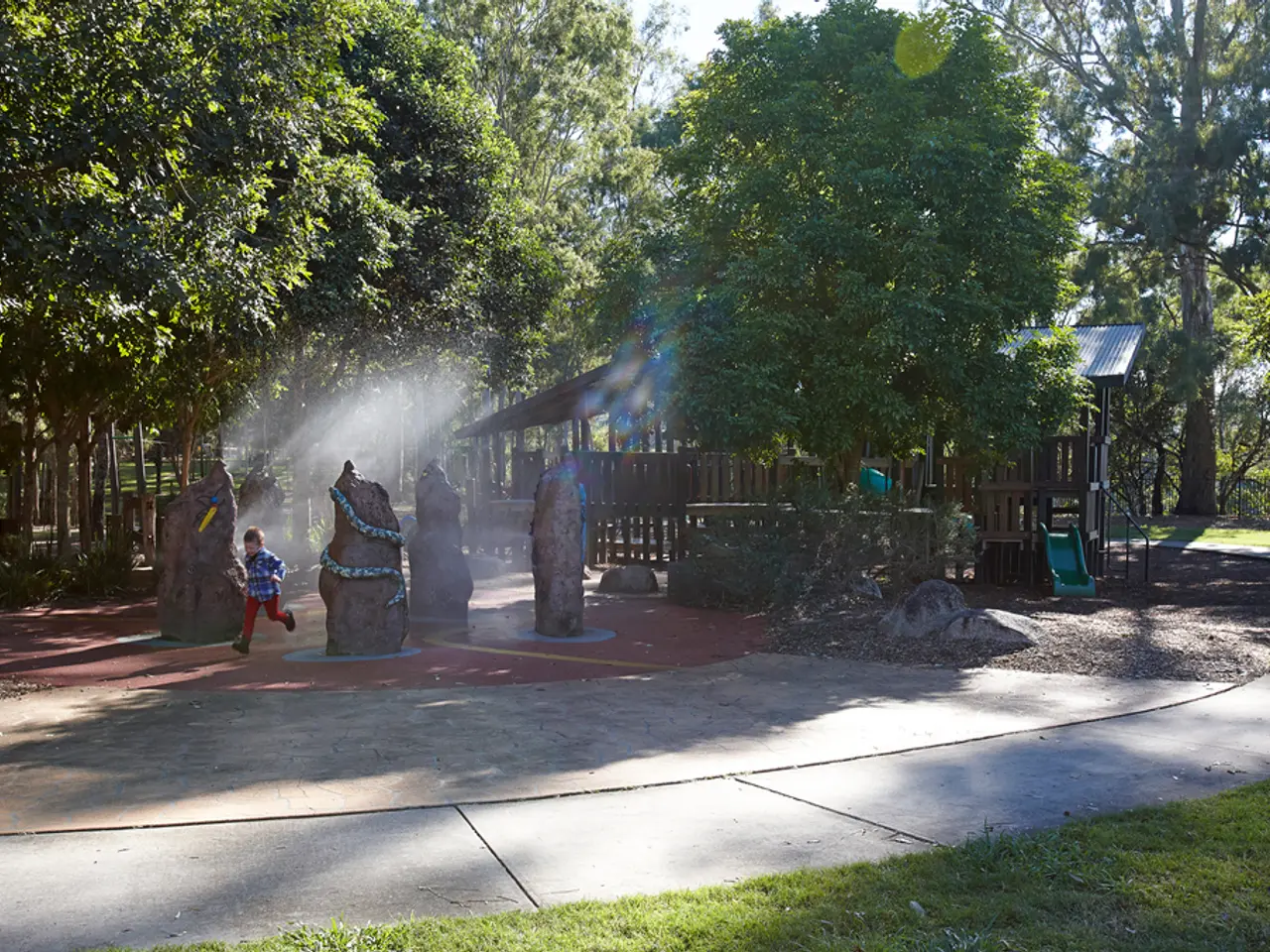Missteps in Online Political Advertising that Could Derail Your Political Goals
In today's digital age, political campaigns can make or break a candidate's electoral chances. To increase their chances of winning office, candidates must avoid common digital marketing mistakes.
Branding and Logo Design
A clear, simple, scalable, and recognizable logo is crucial for voter connection. A poorly designed logo can undermine a campaign from the start [1]. Securing a straightforward domain such as YourName.com is essential for search visibility and voter recall [1].
Platform-Specific Adaptation
Successful social media engagement requires adapting content to each platform's unique style and encouraging audience interaction. Short-form content tends to perform best and can enhance viral reach regardless of follower count [3].
Misinformation and Disinformation
Candidates must be vigilant against false information and disinformation campaigns, which are increasingly sophisticated thanks to AI tools such as deepfakes. These can distort a candidate’s positions or suppress turnout in targeted communities, potentially affecting election outcomes [2].
Engagement and Emotional Connection
Neglecting to connect with voters on an emotional level can make the campaign appear uninteresting. Ignoring negative comments and feedback can make the candidate appear dismissive and unresponsive [1].
Content Strategy
Posting too much or too little content can negatively impact engagement and visibility. Mobile optimization is critical for political websites to ensure a good user experience and maintain trust. Automating posts instead of creating them manually can lead to a lack of personalization and engagement [1].
Audience Segmentation and Targeting
Ignoring audience segmentation can result in lower engagement and missed outreach opportunities. Not using hashtags correctly can limit the campaign's ability to reach new audiences. Targeting the right people with advertising is essential to avoid wasting resources and missing opportunities [1].
Digital Marketing Channels
Diversifying digital marketing efforts across multiple channels, such as email marketing, Google AdWords, and native advertising, can help ensure the campaign reaches its target audience. Failing to use social media platforms to reach voters can limit the campaign's ability to engage with potential supporters [1].
Crisis Communication and Reputation Management
Ignoring crisis communication protocols can damage reputation, create misinformation gaps, and reduce public trust. Being inactive online can make the candidate appear out of touch. Relying too heavily on volunteers for online campaigning can lead to inconsistency and mistakes [1].
SEO and Analytics
Neglecting SEO can lead to poor visibility and reach for the campaign's website. Not regularly tracking results and reviewing analytics can prevent adjustments to the digital marketing strategy. Failing to monitor analytics can impact campaign performance by preventing refinement of strategies, testing message effectiveness, or pivoting quickly when needed [1].
Budget Management
Overspending on digital marketing campaigns can drain resources and reduce the campaign's ability to invest in other areas. Using local language content can build relatability, cultural connection, and increase engagement with diverse voter bases [1].
In conclusion, navigating the digital landscape requires a strategic and thoughtful approach. By avoiding common pitfalls and adapting to the evolving digital landscape, candidates can enhance their digital presence, credibility, and voter engagement, crucial factors in modern political campaigns.
[1] Source: Digital Marketing for Political Candidates
[2] Source: The Impact of Deepfakes on Political Campaigns
[3] Source: The Psychology of Viral Content
[4] Source: The Importance of Email Marketing in Political Campaigns
[5] Source: The Influence of AI on Political Campaigning
- A well-designed logo and a straightforward domain are vital for creating a strong brand identity, ensuring search visibility, and winning over voters.
- Adapting social media content for each platform's unique style and fostering audience interaction can boost engagement and, potentially, viral reach.
- Politicians must be aware of false information and disinformation campaigns that can distort their positions or influence the voting process.
- Neglecting to create an emotional connection with voters may leave a campaign feeling stale and uninteresting.
- Striking a balance in content strategy – neither too much nor too little – is crucial to maximizing engagement and visibility.
- Proper audience segmentation, targeted advertising, and effective use of hashtags can help ensure the campaign reaches the right people, optimizing its digital marketing efforts.
- Diversifying digital marketing channels, including email marketing, Google AdWords, native advertising, and social media, can help increase overall reach.
- Crisis communication and reputation management are essential for responding to and managing online negative incidents, maintaining trust, and ensuring consistency.
- Regularly tracking SEO, analytics, and budget spend can help optimize a digital marketing strategy, guaranteeing the campaign's success.
- Using local language content can help cultivate connections with diverse voter bases and increase engagement.








